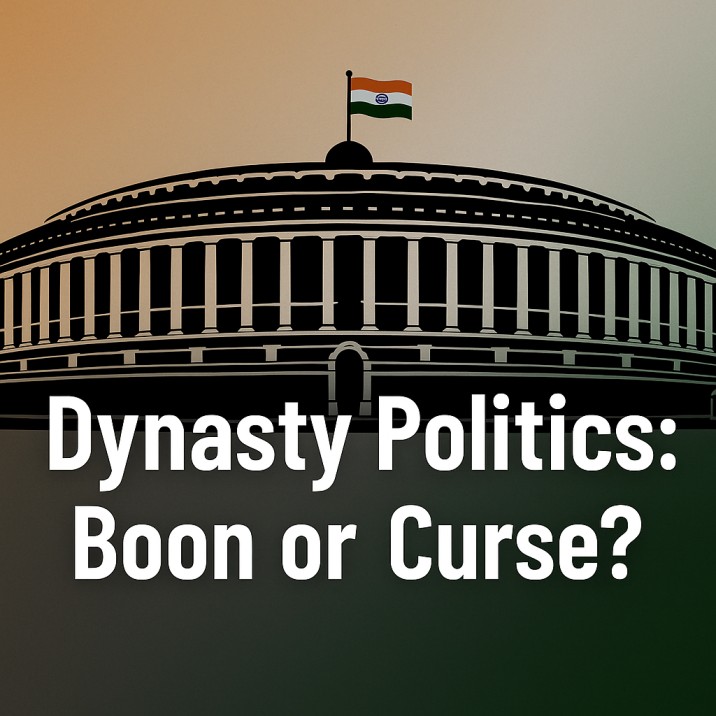Dynasty politics has been a part of Indian democracy since independence. From the Nehru-Gandhi family at the national level to state-level dynasties like the YSR family in Andhra Pradesh, the NTR family in Telangana, the Karunanidhi family in Tamil Nadu, the Mulayam Singh family in Uttar Pradesh, and the Lalu Prasad Yadav family in Bihar — the story is the same. Families continue to dominate political power generation after generation.
Supporters argue that politics is also a profession, so just like a doctor’s son may become a doctor, a politician’s child has the right to continue in the field. They also argue that since people vote willingly, dynasty politics cannot be called undemocratic.
But the problem lies deeper. If dynasty politics dominates, the doors of opportunity close for fresh leadership. Ordinary citizens and grassroots workers lose the chance to rise. Democracy is supposed to mean equal opportunity for all. But when political power is inherited, democracy risks turning into family rule.
In today’s politics, it has almost become routine for ruling families to occupy top positions once their party comes to power. This weakens internal democracy within parties and breeds frustration among the people. Instead of being a platform for public service, politics becomes a private inheritance.
The real danger is that public issues take a backseat while family interests come first. Development and welfare lose importance, while succession and control dominate. That is a betrayal of democratic values.
Citizens must remain alert. Political parties should encourage internal democracy and promote new leadership beyond family circles. Without this, Indian democracy will slowly weaken into hereditary rule — a curse for the idea of equal representation.

